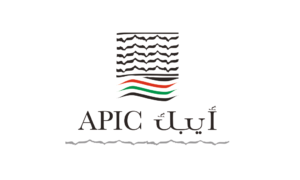Strategy& Smart Mobility in the GCC Report – Saudi Arabia and UAE leading the way in introducing smart mobility
Smart mobility offerings using innovative digital technologies and solutions can create an open and connected transportation networks in the GCC that can move people and freight more efficiently and sustainably than in the past, according to a new study entitled Smart mobility in GCC cities: Fast track to the future published by Strategy& Middle East, part of the PwC network.
Mark Haddad, Principal with Strategy& Middle East said: “By making vehicles and transportation infrastructure technology-enabled and data-informed, smart mobility has the potential to transform society. Used correctly, it can reshape cities and transform society across the GCC”.
Saudi Arabia and UAE leading the way in introducing smart mobility
In Saudi Arabia, the NEOM megacity project recently announced plans to develop the world’s most user-centric, environmentally friendly, and technologically advanced land mobility ecosystem. Riyadh has already invested in a multi-million dollar, artificial intelligence-based adaptive signaling project, which has had a significant impact on day-to-day traffic management.
Dubai’s strategy for smart vehicles aims to convert 25 percent of total journeys to various types of driverless options by 2030.
Abu Dhabi’s environmentally friendly Masdar City now has a self-driving shuttle service and partnerships with several e-scooter providers
Other cities are taking steps and generating progress: Kuwait is applying an intelligent traffic control system for overcrowded intersections. Muscat has implemented smart road technology to manage traffic, significantly reducing congestion at peak hours across the city.
According to the report, applying smart mobility on a wider scale across the GCC will lead to broader benefits in several areas:
Safer roads: Vehicle automation (either full or partial) and better safety technology can reduce the number of traffic accidents, leading to fewer roadway fatalities and injuries.
Less traffic: Smart mobility can move vehicles and people more efficiently over existing roadway networks with less congestion. It can also provide people with alternative options such as shared rides, scooters, bicycles, or mass transit, leading to reduced travel times.
Cleaner environment: Smart mobility can lead to a reduction in negative environmental effects of the transportation sector by providing travelers and transportation system operators with more environmentally friendly options.
More effective workforce: Reinventing mobility will have an important effect on the workforce. Some households will be able to move closer to urban areas (and dispose of private vehicles), increasing their employment prospects and options. Others that choose to move farther away from urban centers can do so as travel times decrease and as autonomous vehicles and other transit options allow commuters to be productive while traveling.
In the future, city transportation will be a linked network of autonomous vehicles (some electric- powered), shared-mobility solutions, adaptive traffic signals that can sense current conditions and adjust to improve traffic flows, micromobility options, and even airborne taxis. These will work together to create a faster, more sustainable, and more efficient system. Vehicles will communicate with each other and with infrastructure. People will have a much wider range of options for getting around.
Appropriate governance framework and regulations needed in the GCC to implement smart mobility
Smart mobility requires an appropriate governance framework and regulations, both of which demand legislative action and involvement from multiple jurisdictions. The rapid pace of technological development means that ministries and city authorities have to coordinate governance across disciplines and institutions to ensure that new solutions and business models are fair, accessible, equitable, and sustainable.
Dr. Ulrich Koegler, Partner with Strategy& Middle East, commented: “On the regulatory front, governments need to craft a flexible, inclusive, and responsive set of regulations to support smart mobility. For instance, many governments will need to revamp the way they license and regulate vehicles to accommodate smart technologies”.
Cybersecurity, data privacy, and physical security issues are other focal areas, in addition to the legal and liability concerns of current mobility services and how these might develop or change with increasing integration of new mobility concepts. “Only this kind of comprehensive approach will provide confidence among the private sector and encourage them to engage in the smart mobility revolution”, added Koegler.
The Strategy& report identifies three areas through which GCC governments can master the smart mobility ecosystem
To reap the benefits of smart mobility, and avoid or mitigate the problems, GCC authorities need to learn to manage a fast-moving set of technologies, solutions, and providers. They can master the smart mobility ecosystem through a three-step approach.
Establish a holistic policy and strategy for smart mobility
City authorities should conduct a thorough assessment of their current mobility challenges to identify the most urgent problems and pain points. Problems can be categorized in different ways, but most fall into one of several main categories: user experience, safety, mobility, accessibility, and environmental sustainability. The strategy shall first focus on quick win actions in the short term, which are driven by proven technologies like AI-based traffic analytics and service integration through a common platform reshaping the full traveler experience (MaaS). The medium to longer term goals shall be around ways to incorporate new mobility modes in urban setting i.e. autonomous vehicles, drones etc.
Develop an institutional and regulatory framework
Authorities need to develop an institutional and regulatory framework that corresponds to their mobility policy and strategy. At a high level, the institutional and regulatory framework ensures that public agencies are prepared to deploy smart mobility systems for an array of possible scenarios.
Collaborate through partnerships and platforms
Planning, developing, and implementing smart mobility solutions calls for cooperation by a wide range of entities in the public sector (other authorities and ministries), the private sector (technology firms, service providers, and professional organizations), and academic institutions.
“Worldwide, the mobility sector is going through the most significant revolution since the development of cars more than a century ago. Even more than other parts of the world, GCC cities are ripe for the benefits of smart mobility. Capitalizing on these technologies requires a structured approach, but the rewards will more than justify the effort”, concluded Haddad.




























